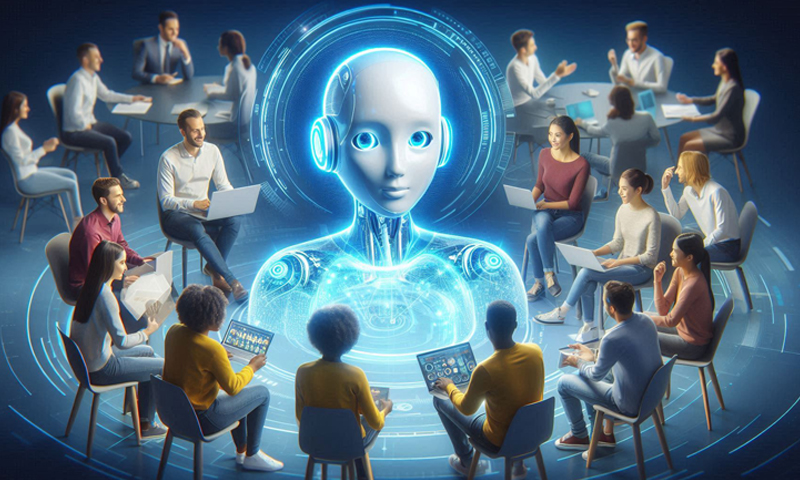Artificial Intelligence (AI) has moved from the realm of science fiction to an integral part of modern society. It powers everything from virtual assistants and recommendation algorithms to self-driving cars and advanced medical diagnostics. As AI continues to evolve, its integration across industries is reshaping how businesses operate, how people work, and how technology interacts with the world.
Understanding AI Integration
Artificial Intelligence integration refers to embedding artificial intelligence technologies into existing systems, applications, and workflows to improve efficiency, accuracy, and decision-making. This can take many forms, including:
Machine Learning (ML): AI systems that learn from data and improve over time.
Natural Language Processing (NLP): AI’s ability to understand and generate human language.
Computer Vision: AI’s capability to interpret and analyze visual data.
Robotic Process Automation (RPA): AI-driven automation of repetitive tasks.
Industries Transformed by AI
1. Healthcare
Artificial Intelligence is revolutionizing healthcare by improving diagnostics, personalizing treatments, and streamlining administrative tasks. Machine learning models can analyze medical images to detect diseases like cancer earlier than human doctors. AI-driven chatbots assist patients with symptoms and medication reminders, while predictive analytics help hospitals optimize resource allocation.
2. Finance
Banks and financial institutions leverage AI for fraud detection, risk assessment, and customer service. AI-driven algorithms analyze transaction patterns to flag suspicious activities in real time. Automated trading systems use AI to make split-second investment decisions, while robo-advisors help individuals manage their finances.
3. Retail and E-Commerce
AI enhances the shopping experience through personalized recommendations, chatbots, and demand forecasting. Retailers use AI to analyze customer behavior and predict trends, optimizing inventory and reducing waste. Computer vision technology enables cashier-less stores, such as Amazon Go, where AI tracks purchases without traditional checkout lines.
4. Manufacturing
AI-driven automation and predictive maintenance are improving efficiency in manufacturing. Smart robots assist in assembly lines, reducing human error and increasing production speed. AI-powered sensors predict equipment failures, preventing costly downtime.
5. Education
Artificial Intelligence personalizes learning by adapting to individual students’ needs. Intelligent tutoring systems provide tailored instruction, while AI-powered grading tools help educators assess students more efficiently. AI chatbots assist students with coursework and administrative inquiries.
6. Transportation and Logistics
AI is at the heart of autonomous vehicles, traffic management, and supply chain optimization. Self-driving cars, powered by AI, use sensors and algorithms to navigate safely. AI also optimizes delivery routes for logistics companies, reducing fuel consumption and improving efficiency.
7. Customer Service
Artificial Intelligence-powered chatbots and virtual assistants, like ChatGPT and Siri, handle customer inquiries efficiently. They provide 24/7 support, reducing wait times and improving user satisfaction. AI also assists call centers by analyzing customer sentiment and providing agents with real-time recommendations.
Challenges of AI Integration
While AI offers significant benefits, its integration comes with challenges:
Data Privacy & Security: AI relies on vast amounts of data, raising concerns about user privacy and data breaches.
Bias & Fairness: AI models can inherit biases from training data, leading to unfair or discriminatory outcomes.
Job Displacement: Automation powered by AI may replace certain jobs, requiring workforce adaptation and reskilling.
High Implementation Costs: Integrating AI into existing systems can be expensive and require significant infrastructure upgrades.
The Future of AI Integration
Artificial Intelligence integration will continue to advance, shaping a future where intelligent systems enhance human capabilities rather than replace them. The key to successful AI adoption lies in ethical development, transparency, and responsible usage. As industries embrace AI, collaboration between policymakers, businesses, and researchers will be essential to maximize its benefits while addressing potential risks.
The integration of AI is not just a technological shift- it’s a fundamental transformation in how society operates. While challenges exist, the benefits of AI in improving efficiency, decision-making, and innovation make it a powerful force for progress. As AI continues to evolve, its impact will only grow, making it essential for businesses and individuals to adapt to the changing landscape.










